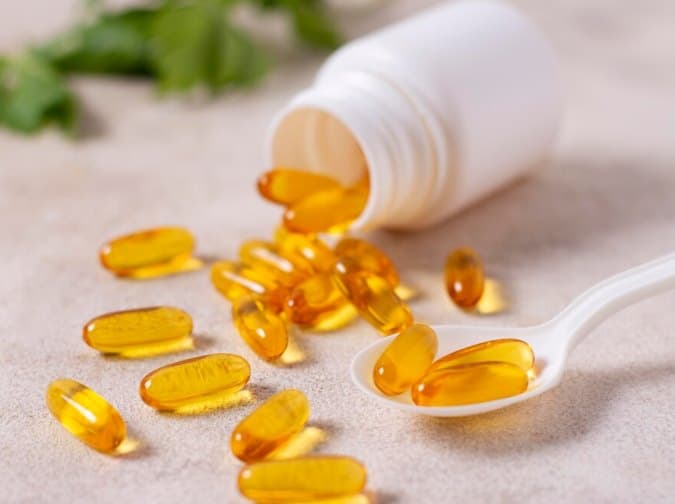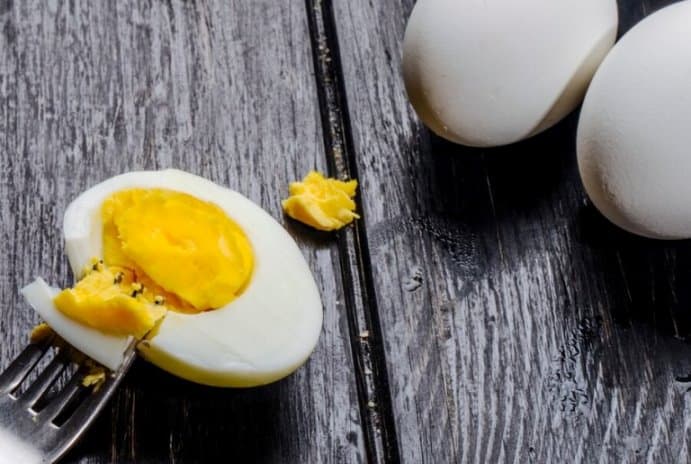Maintaining healthy hair is a priority for many individuals, and understanding the role of biotin can be essential for achieving this goal. Biotin, also known as vitamin B7 or vitamin H, is a water-soluble vitamin that is part of the B-vitamin complex. It plays a crucial role in maintaining the health of our hair, skin, and nails.
What is Biotin and Why is it Important for Hair Health?
Biotin is essential for the body’s metabolic processes, particularly those involving energy production and the breakdown of nutrients like fats, carbohydrates, and proteins.
This vitamin acts as a coenzyme, meaning it helps certain enzymes function properly, especially those involved in synthesizing fatty acids, gluconeogenesis (the creation of glucose from non-carbohydrate sources), and amino acid metabolism. These processes are vital for cellular energy and the maintenance of healthy tissues.
Biotin is naturally present in various foods, and a small amount is also synthesized by the beneficial bacteria in the intestines. However, like other B vitamins, biotin is not stored in the body and must be consumed regularly through diet or supplements to meet daily requirements.
Biotin contributes to healthy hair growth by:
- Keratin Production: Biotin is essential for synthesizing keratin, a structural protein that makes up the bulk of hair, skin, and nails.
- Strengthening Hair Strands: It improves the elasticity and strength of the hair shaft, reducing breakage.
- Scalp Health: Biotin supports the production of fatty acids, which keep the scalp hydrated and free of irritation, fostering an environment conducive to hair growth.
Read Also: How Does Vitamin D Help With Seasonal Depression?
Signs Your Hair Might Need Biotin
Biotin is essential for maintaining healthy hair. When your body doesn’t get enough of this vital vitamin, your hair might show signs that indicate a deficiency. While biotin deficiencies are relatively uncommon in healthy individuals, certain symptoms can suggest your hair may benefit from increased biotin intake.
Increased Hair Shedding
If you notice an unusual amount of hair falling out during washing or brushing, it could be a sign of biotin deficiency. Although it’s natural to lose some hair every day, excessive shedding may be a sign that your hair isn’t getting the nutrients it needs to be strong and healthy.
Brittle and Weak Hair
Hair that feels brittle or breaks easily is often a signal that it lacks sufficient biotin. Healthy hair should have elasticity and strength. If your hair seems fragile or breaks when you style it, this might indicate a need for increased biotin intake.
Slow Hair Growth
If your hair growth has plateaued or seems slower than usual, biotin could be the missing piece. Biotin supports cellular metabolism, which is essential for promoting healthy hair growth.
If you’ve been maintaining a healthy lifestyle but aren’t seeing growth, consider boosting your biotin levels.
Dull and Lifeless Appearance
Hair that appears dull and lacks shine may also be lacking essential nutrients, including biotin. Biotin helps to improve the overall health of the hair, making it look vibrant and healthy. The loss of sheen in your hair may indicate that you need to take more biotin.
Scalp Issues
A healthy scalp is fundamental for hair growth. If you experience conditions like dry scalp, flaking, or inflammation, it could be linked to a biotin deficiency. Biotin helps maintain a healthy scalp environment, which is crucial for optimal hair growth.
Benefits of Biotin for Hair Health
Here are the primary benefits of biotin for hair health:
Promotes Healthy Hair Growth
Biotin is widely recognized for its ability to support hair growth. It helps strengthen hair follicles, encouraging stronger and healthier strands. Many individuals report noticeable improvements in their hair growth when supplementing with biotin.
Strengthens Hair Strands
One of the most significant benefits of biotin is its capacity to strengthen the hair shaft, reducing breakage and promoting overall hair integrity. This strengthening effect can result in thicker, fuller hair over time.
Enhances Hair Texture
Regular intake of biotin can improve the texture of hair, making it feel softer and more manageable. This benefit is especially important for individuals with coarse or curly hair types who may struggle with frizz and dryness.
4. Supports Scalp Health
Biotin plays a vital role in maintaining scalp health. A healthy scalp fosters an ideal environment for hair growth. By reducing inflammation and supporting skin health, biotin can help create the conditions necessary for healthy hair.
Combats Hair Loss
Biotin is often recommended for individuals experiencing hair loss. Studies suggest that biotin supplementation can reduce hair loss in those with deficiencies, offering a natural solution to this common issue.
How to Incorporate Biotin into Your Diet
Getting enough biotin is essential for maintaining healthy hair, skin, and nails, as well as supporting overall metabolic functions. Fortunately, biotin is found naturally in many foods and can easily be included in a balanced diet. Below are practical steps to incorporate biotin-rich foods into your daily meals.
Dietary Sources of Biotin
Including biotin-rich foods into your diet can help boost your levels naturally. Foods high in biotin include:
- Egg yolks: A significant source of biotin, eggs can easily be included in various meals.
- Nuts and seeds: Almonds, walnuts, and sunflower seeds are excellent snacks that provide a healthy dose of biotin.
- Whole grains: Oats and barley are rich in biotin and can be included in breakfast or snacks.
- Avocados: This versatile fruit is not only biotin-rich but also full of healthy fats. Add it to toast, salads, or smoothies.
- Sweet Potatoes: Rich in both biotin and other nutrients like beta-carotene, sweet potatoes can be roasted, mashed, or added to casseroles.
- Legumes: Beans and lentils are not only good sources of biotin but also provide additional protein.
- Bananas: This popular fruit is a convenient way to increase your biotin intake.
Avoid Overcooking Biotin-Rich Foods
Biotin is sensitive to heat, and excessive cooking can reduce its levels in food. Whenever possible:
- Opt for steaming, boiling, or lightly cooking vegetables rather than frying or overbaking.
- Enjoy nuts and seeds raw for maximum nutrient retention.
Biotin Supplements
If you struggle to get enough biotin from food or have specific health conditions that impact nutrient absorption, biotin supplements may help. These are available as standalone supplements or as part of multivitamins. However, always consult a healthcare provider before starting supplementation.
Hair Care Products with Biotin
Many shampoos and conditioners now contain biotin as an active ingredient. Using hair care products enriched with biotin can help support the health of your hair and scalp.
Sample Daily Menu for Biotin-Rich Meals
- Breakfast: Scrambled eggs with avocado on whole-grain toast and a banana on the side.
- Snack: A handful of almonds and sunflower seeds.
- Lunch: Lentil soup with a side of roasted sweet potato slices.
- Dinner: Grilled chicken or tofu with a quinoa and spinach salad topped with walnuts.
- Dessert: Greek yogurt with a drizzle of honey and fresh fruit.
Risks and Warnings of Biotin
Even while biotin is typically safe when consumed in recommended amounts, excessive supplementation or improper use can lead to potential risks.
High doses of biotin can interfere with laboratory tests, causing inaccurate results for thyroid function, hormone levels, and cardiac markers, potentially leading to misdiagnoses.
Rare allergic reactions, such as skin rashes, itching, or swelling, may occur, and gastrointestinal issues like nausea, cramping, or diarrhea are possible side effects.
Over-supplementation can disrupt the balance of other B vitamins and nutrients, while some individuals may experience acne or breakouts, possibly due to reduced absorption of vitamin B5.
Biotin supplements are often marketed for hair and nail health, but their effectiveness is mostly evident in those with confirmed deficiencies.
Pregnant or breastfeeding women, individuals with underlying health conditions, or those taking medications should consult a healthcare provider before using biotin supplements.
To minimize risks, it is best to obtain biotin through a balanced diet and only use supplements under medical guidance.
Conclusion
It’s important to remember that hair health is influenced by multiple factors, including genetics, overall nutrition, and lifestyle habits. While biotin is a key player, maintaining a well-rounded diet, managing stress, and practicing good hair care routines are equally critical for achieving optimal hair health.
Knowing the advantages of biotin and making thoughtful dietary choices, you can ensure your body receives the nutrients it needs to promote strong, healthy hair and overall wellness.

